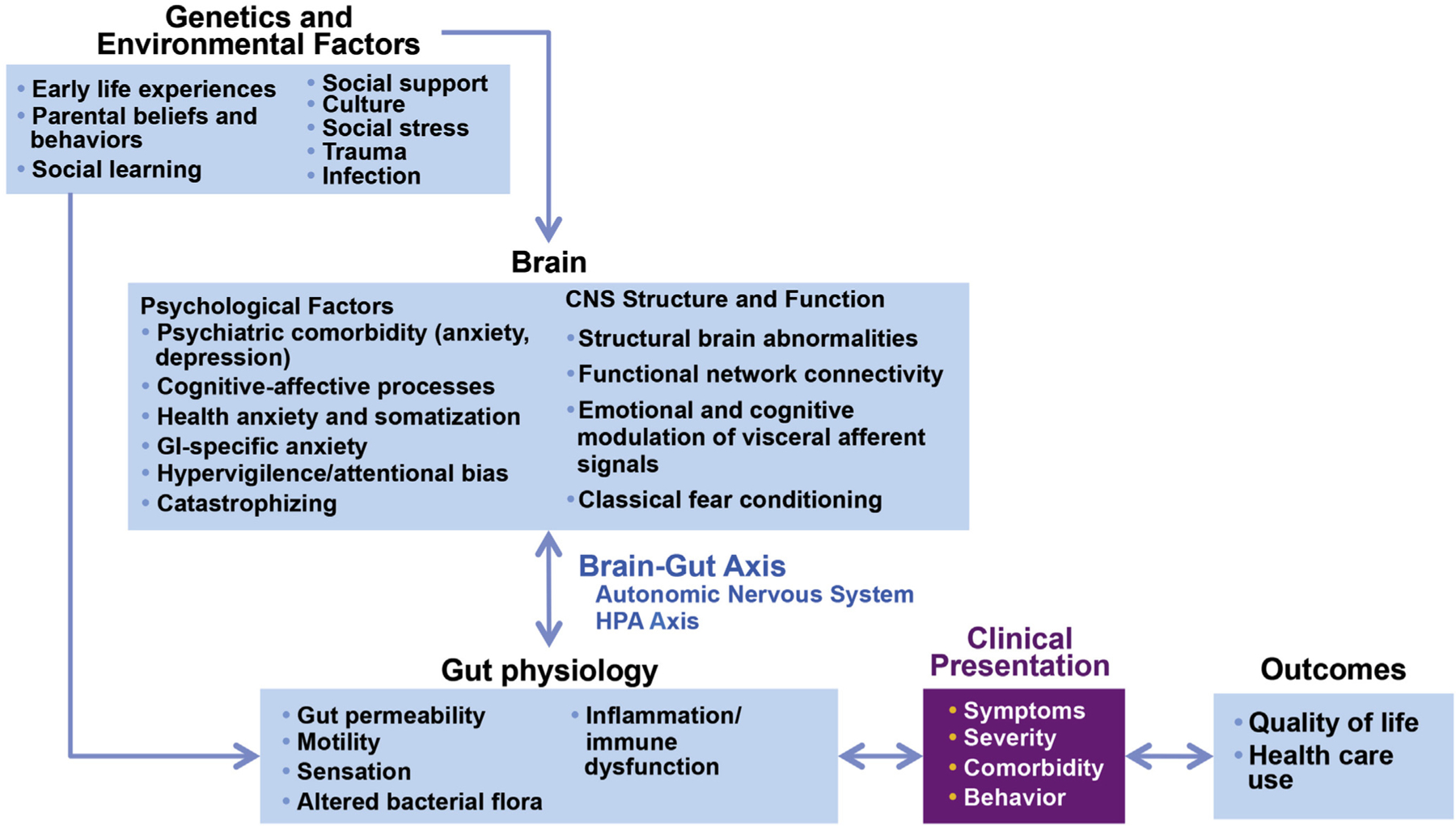Figure 1.

Biopsychosocial Model of IBS. Genetic and environmental factors, such as early life experiences, trauma, and social learning, influence both the brain and the gut, which in turn interact bidirectionally via the autonomic nervous system and the HPA axis. The integrated effects of altered physiology and the person’s psychosocial status will determine the illness experience and ultimately the clinical outcome. Furthermore, the outcomes will in turn affect the severity of the disorder. The implication is that psychosocial factors are essential to the understanding of IBS pathophysiology and the formulation of an effective treatment plan. Figure adapted from Drossman et al,109 with permission.
